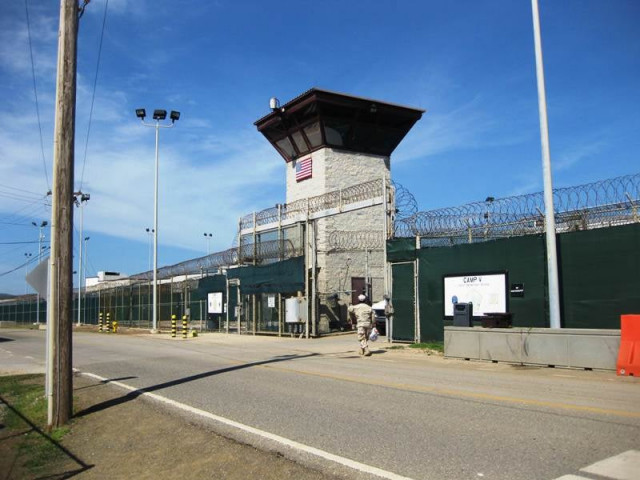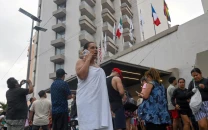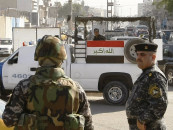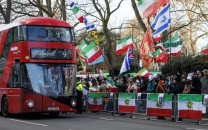Guantanamo hunger strike widens, concern over force-feeding
Among the strikers, 19 have been given nasal feeding tubes, and five of those are hospitalised.

Among the strikers, 19 have been given nasal feeding tubes, and five of those are hospitalised. PHOTO: AFP
Among the strikers, 19 have been given nasal feeding tubes, and five of those are hospitalised but do not have life-threatening conditions, Guantanamo Bay spokesman Lieutenant Colonel Samuel House said in a statement.
The rapidly-growing protest movement began on February 6, when inmates claimed prison officials searched their copies of the Koran for contraband, according to their lawyers. Officials have denied any mishandling of Islam's holy book.
Prison authorities first released figures on the strike on March 11, saying nine inmates were participating.
Lawyers for the detainees say the official numbers are too low and that around 130 inmates are observing the hunger strike.
The strikers are protesting their extrajudicial incarceration during the 11 years since the prison went into use for terror suspects detained mostly in Afghanistan and Pakistan.
"The illegal detentions without charge or trial at Guantanamo Bay have gone on for more than a decade with no end in sight, so it's not surprising that detainees feel desperate," said Human Rights Watch counterterrorism adviser Laura Pitter.
"The Obama administration simply has to do more to end this unlawful practice that will forever be a black mark on US history."
White House spokesman Jay Carney meanwhile blamed Congress for the failure to close Guantanamo.
"The president remains committed to closing the detention facilities at Guantanamo Bay," said Carney, adding that the White House was "closely" monitoring the hunger strike.
"A fundamental obstacle to closing this detention facility... remains in Congress."
Carney was referring to legislation that has hampered the Obama administration's efforts to close the jail.
Prisoner advocates and rights groups have meanwhile raised concern over the method of feeding detainees via tubes. House, the Guantanamo spokesman, refused to characterize the method as force-feeding.
"I refuse to say 'force-feeding,'" he said. "It refers to a cartoon where individuals are strapped, yelling, screaming, mouth open and food is dumped down the person's throat and that is not the case.
"We will continue to prevent people from starving. It is by all means the rights of detainees to protest, however it is our mission to provide safe, secure and a humane environment and we will not allow our detainees to starve themselves to death."
But rights groups and medical experts have differed sharply with the US military on feeding inmates via a tube.
"There is a discrepancy between the position of the United States and the ICRC," said International Committee of the Red Cross director Peter Maurer.
The Constitution Project, a non-profit group that promotes bipartisan consensus on legal reform, concluded in a recent report that "forced feeding of detainees is a form of abuse and must end."
Lawyers representing detainees at Guantanamo also condemn the practice. Attorney Omar Farah said one of his clients at the jail reported being force-fed to the breaking point.
"He reported that eventually he had to give up because of the harshness with which he was treated," Farah said.
"He reports he was force-fed to the point he was overly full and he would vomit, being strapped down. The regime was so harsh that eventually he gave up."



















COMMENTS
Comments are moderated and generally will be posted if they are on-topic and not abusive.
For more information, please see our Comments FAQ